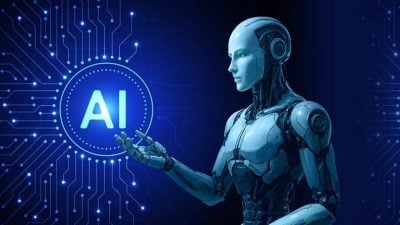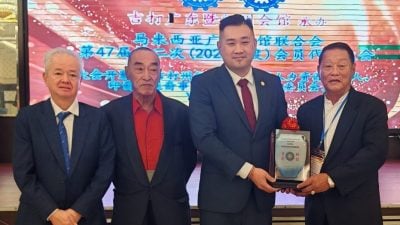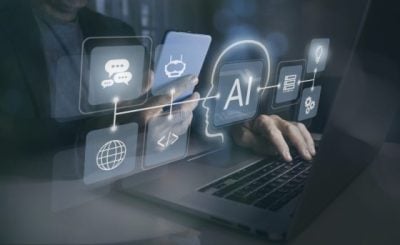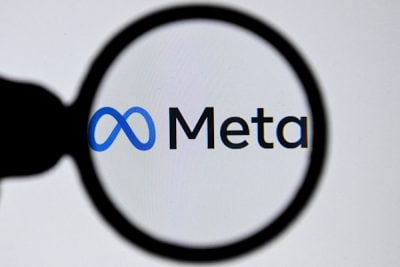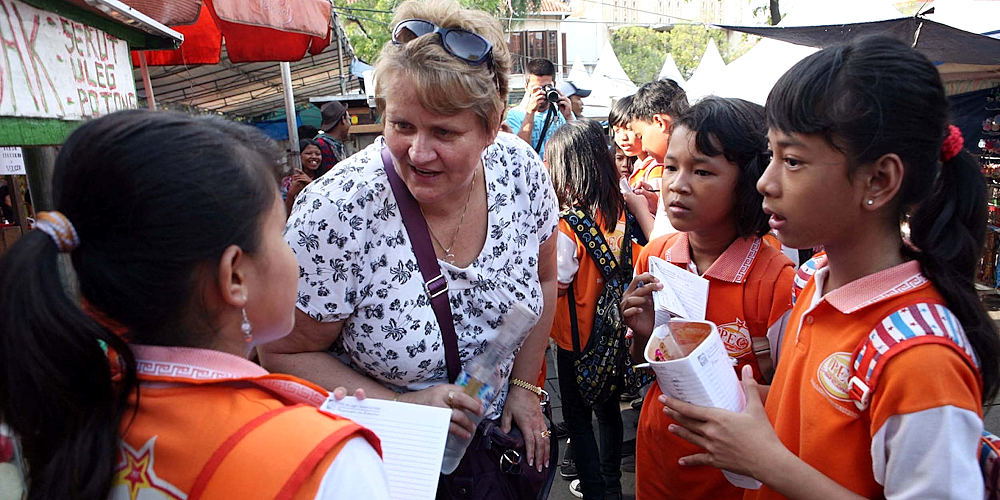
Where will artificial intelligence (AI) make a big difference to our lives in the future? One sector in which Asians believe it will have a significant positive impact is education and training, according to a survey by Google and Ipsos.
There is already evidence of this potential. The revolutionary capabilities of generative AI (GenAI) are unlocking new ways to democratise access to quality education and future jobs at a scale Indonesia needs.
This trend is evident in our data as well. Enrolments in GenAI courses in Indonesia have surged 1,158 per cent year-on-year (y-o-y), compared to a 1,060 per cent y-o-y increase globally.
Indonesia now ranks third in Southeast Asia for the highest number of enrolments, after Singapore and Vietnam.
Here are four areas where AI can level the playing field for learning and work to shape an inclusive future.
First is access to learning with the world.
Advances in machine learning (ML) have greatly reduced the cost and time needed to translate course material: from thousands of dollars and months to translate a course, it now costs less than US$30 and can be done in a few days with ML.
Language barriers have previously held back learners looking to develop new skills and enter new fields.
With AI-translated content, even a student or worker not completely proficient in English can accessibly build skills online for digital jobs. Learners in the Asia-Pacific are already using this to their advantage.
This breakthrough comes at an opportune moment, as internet penetration is rapidly increasing in Indonesia.
With over 77 per cent of its population online, the country now ranks fourth globally in internet users after China, India and the United States.
As the digital divide narrows, AI can catalyse new opportunities to scale high-quality, relevant learning for all Indonesians.
Second is the next frontier of personalised and interactive learning.
Private tutors have always been the privilege of a few till now. But soon, every Indonesian student could have their own GenAI personal coach.
Just like a real-world tutor, an AI coach can offer customised study tips, explain a concept the evening before an exam and even teach a module in a student’s native language.
GenAI can make personalised coaching accessible and economical at scale, without time or location constraints.
Such individualised learning would help improve learning outcomes for learners in different contexts, from helping those falling behind academically to supporting learners in backward regions.
Students are already seeing benefits from personalised learning with GenAI.
A survey by Tirto and Jakpat revealed that 86 per cent of students aged 15-21 surveyed were using AI assistance at least monthly to complete tasks.
GenAI’s conversational abilities also can be utilised for a range of applications, for example as a debate opponent that generates counterarguments while a student fine-tunes their own point of view.
According to UNESCO, GenAI can be used beneficially to facilitate inquiry- or project-based learning, playing a role similar to a research advisor in guiding a student.
Third is classroom aid: How AI can augment teaching.
“Now, more than ever, we need to move towards learning societies. People everywhere need high-quality skills, knowledge and education. Above all, they need the best teachers possible,” said United Nations chief António Guterres.
UNESCO estimates that by 2030, nearly 69 million more teachers will be needed to achieve universal basic education, yet current trends see this deficit increasing.
AI could support and free up teachers, especially when they are short-staffed, to save time while steering effective student outcomes.
GenAI can be used to scale practice assessments tailored to each learner’s needs, or generate multiple-question paper variants for robust testing that deters cheating.
AI-assisted grading could streamline grading by suggesting scores and feedback while leaving the final decision to the teacher.
With GenAI, faculty can auto-generate an entire course, from its structure to assignments, in just a few hours.
Instructors would be able to easily produce a privately authored course that blends high-quality content from external experts with their own internal content.
For multilingual classes, GenAI can craft personalised, step-by-step instructions for every student, a capability that can be useful to bridge linguistic barriers.
Fourth is a future-ready workforce.
Indonesia has seen a surge in enrolments for GenAI courses, reflecting a keen interest in AI skills.
Enrolments have soared 1150 per cent y-o-y, with significant increases in courses such as Prompt Engineering for ChatGPT by Vanderbilt University, Google AI Essentials and Generative AI for Everyone by DeepLearning.AI, driven by the growing demand for AI expertise.
A Microsoft-LinkedIn research found that 76 per cent of Indonesian leaders were even willing to hire a less experienced candidate if they had AI skills.
GenAI will not take over jobs, but workers who are not using AI might be replaced by those who do.
High GenAI enrolments among Indonesian enterprise learners signal that even those employed are upskilling to remain relevant in their jobs and the market at large.
Every graduating student will need to know how to use GenAI as a thought partner and to augment their work, to become employable and productive in their very first job.
Online learning can be a powerful tool for promoting equal access to in-demand AI skills, with public and private institutions playing a key role in powering mass AI skilling and reskilling programmes.
Democratising access to AI skills aligns with the government’s plan to increase digital inclusion and the use of AI in every sector, including education.
The AI revolution can create more equal opportunity for all Indonesians. Harnessing its potential in education, especially to narrow the opportunity gap, will ensure equitable outcomes in an AI world.
ADVERTISEMENT
ADVERTISEMENT






